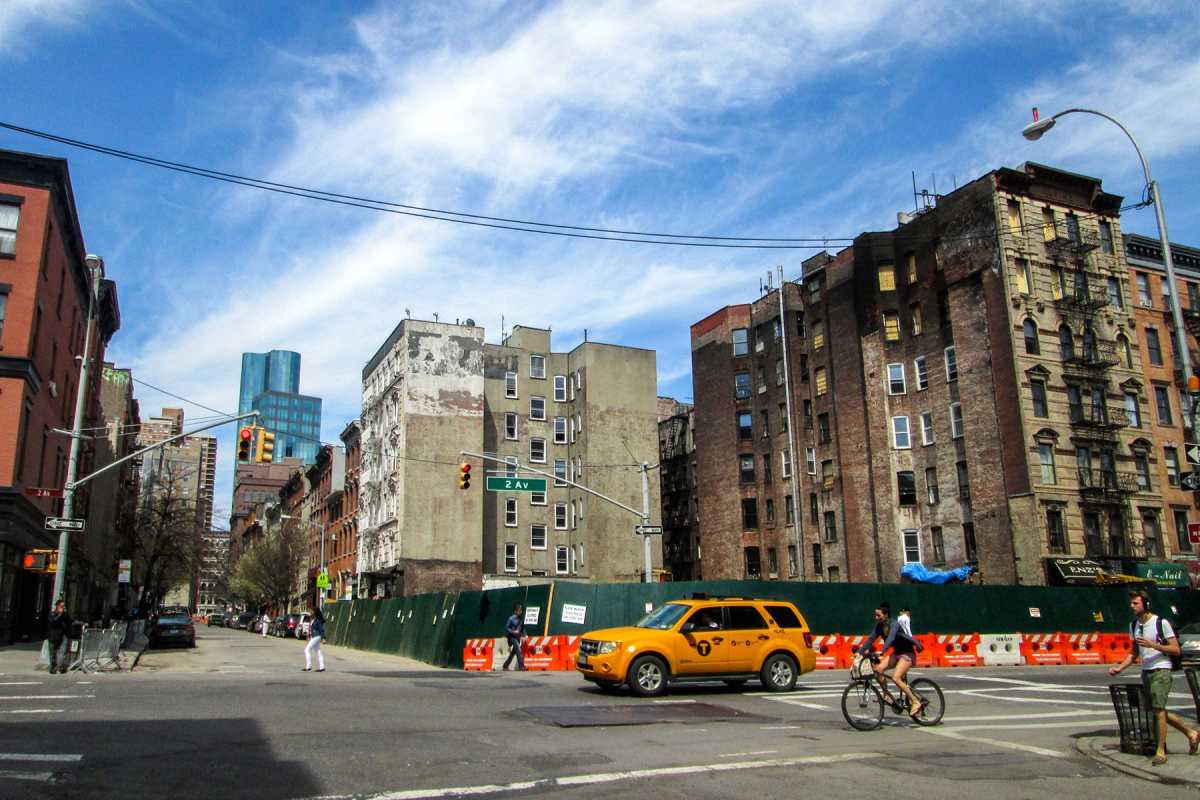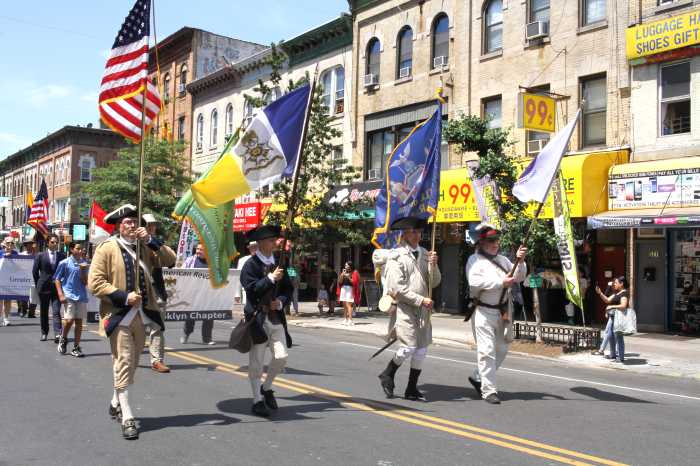Brooklyn property owners may be slapped with fines they can’t afford at the end of the year and community leaders are upset that in a turbulent COVID pandemic year, the city’s Department of Buildings (DOB) has seemingly forgotten to inform the neighborhoods about mandated inspections of gas pipes.
Community Board 3 Chairperson Richard Flateau and District Manager Henry Butler are sounding the alarm for Bedford-Stuyvesant residents unaware of the upcoming enactment of Local Law 152 (LL152) of 2016, effective January 1. They are requesting a postponement of the initial inspections.
“About a month ago, plumbers were sending notices to households saying, ‘Hey, you better get this inspection done or you’re going to get fined $10,000 by the city.’ So residents started calling the community board, wanting to know if this was a scam,” said Butler about how this was brought to their attention.
He said in the middle of a pandemic the situation is equivalent to the tax and water lien sale in the Black community, and there’s been no outreach from the city about the issue.
Essentially, gas piping systems in most buildings must be inspected by a Licensed Master Plumber (LMP) at least once every four years and property owners who don’t comply to file for an Inspection Certification before December 31, 2020 in Community Districts 1, 3 and 10 in all boroughs could face a fine of $10,000.
Neville Adams is an LMP at NCA Plumbing and Heating on 95 Ralph Avenue. Adams said that plumbers are notified via DOB, and estimates he was sent information about the law a year or two ago. “They would’ve gotten the notices a while ago,” said Adams about plumbers. He said notices for homeowners are really between them and the city.
The city law is for owners of buildings, except one- or two-family homes known as R3 occupancy groups. It includes places of worship or religious institutions, and requires the inspection of exposed gas piping, not including gas piping above a drop ceiling or behind an access door.
“Homeowners, houses of worship, they’re on the brink. If they have to dish out $800, $900 for an inspection and they find issues that add up to $5,000 in repairs–People don’t have money sitting around like that, especially if you lost your job or your tenant this year,” said Butler.
The legislation was prompted by a major gas explosion in 2015 in Manhattan, said a Consolidated Edison Inc (ConEd) spokesperson.
NBC 4 New York reported that landlord Maria Hrynenko, and two unlicensed plumbers, Athanasios “Jerry” Ioannidis and Dilber Kukic, were found guilty of causing the gas explosion that resulted in the deaths of two people and left 25 people injured. Prosecutors charged them with “rigging an illegal gas line that triggered the blast.” Inspectors failed the building twice prior to the explosion, said ConEd.
This case spotlighted building owners and plumbers taking shortcuts that were extremely dangerous, said ConEd. He added that wasn’t the case in the 2014 natural gas explosion in Harlem that resulted in the deaths of eight people and a $153.3 million settlement between the utility company and New York State.
He also pointed out that ConEd doesn’t service the area LL152 will be affecting in Brooklyn, National Grid does.
“Inspections of gas piping systems are vitally important to help keep New Yorkers safe. The implementation details of Local Law 152 were finalized over a year ago, and widely communicated by the Department of Buildings. Any property owner with additional questions is encouraged to reach out to us,” said DOB Spokesperson Grace Munns.
“Since Local Law 152 was passed in 2016, the DOB has engaged with stakeholders, including property owners, gas utilities, and the plumbing industry to successfully implement this legislation. The rules for frequency and timing for inspections was established with stakeholder input. This went into effect in October 2019, giving property owners a year to complete the inspections,” said Munns.
When asked about community outreach, Munns said that as the deadline got closer, the DOB has reached out to elected officials and community boards citywide as well as industry stakeholders.
“Owners of buildings that do not contain gas piping must submit to the Department a Gas Piping System Periodic Inspection Certification, signed and sealed by a registered design professional, stating that such building contains no gas piping,” said Munns.
She also said that records of the inspection must be kept for eight years after the completion of the documents.
Recently, said Munns, the DOB sent people to collaborate with CB3 to discuss LL152 and will participate in a follow up meeting tomorrow evening. Additionally, she said, they have published reminders to property owners on their website via Service Notices and Buildings News.
Munns said at this time no extension has been granted, and the DOB will notify the public if that changes.
CB 3 will hold a virtual town hall meeting on the issue at 6 p.m., tonight, Nov 6 at BIT.LY/CB3152. The password is CB3DOB2.
[This article was originally posted on our sister site, Kings County Politics.]






